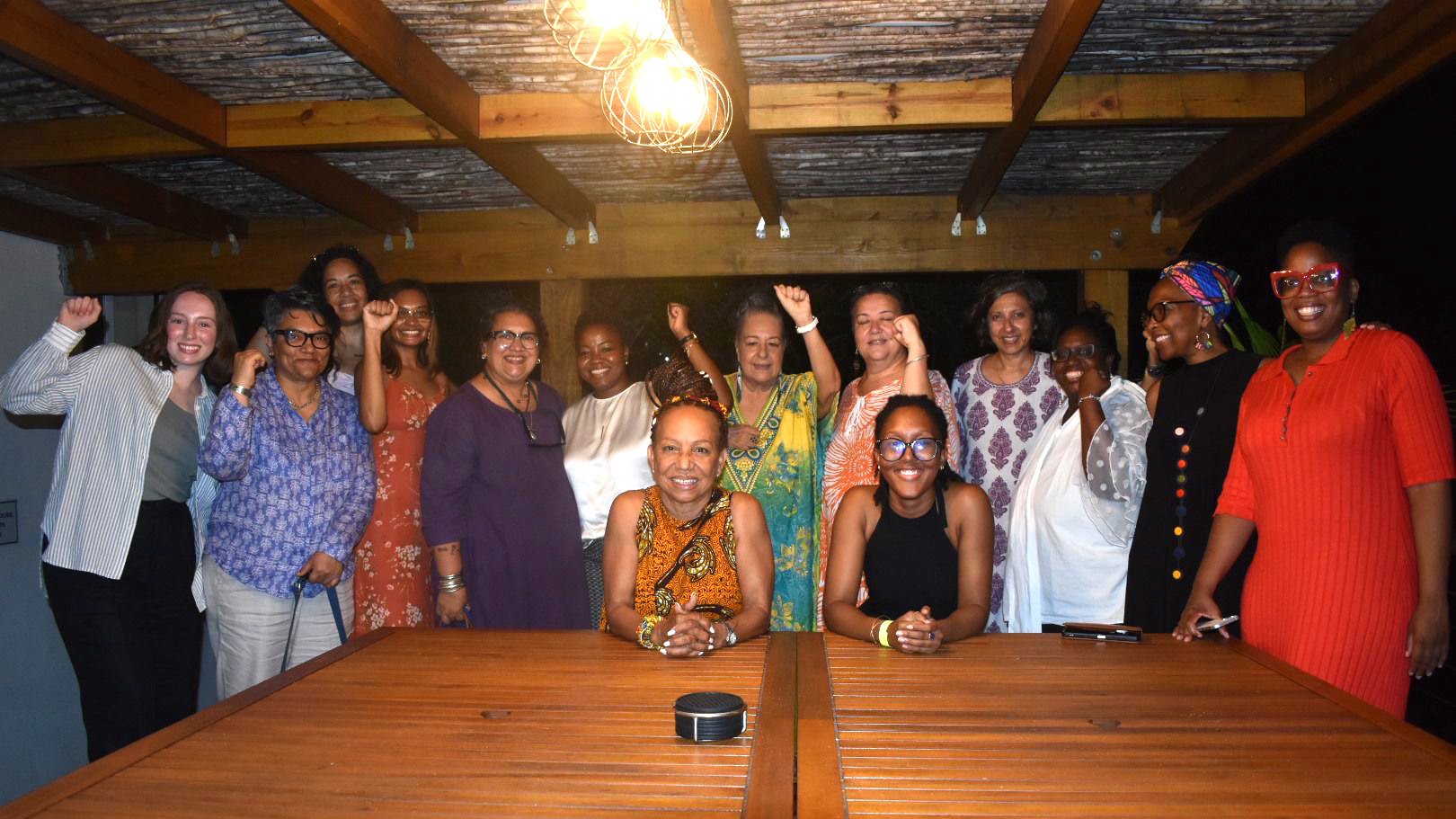Invited by allies in the Pacific and the Caribbean, with whom we’ve convened regional meetings on gender, climate change, and economic and trade policy over the past decade, Regions Refocus engaged in the 4th International Conference on Small Island Developing States (SIDS4) in Antigua and Barbuda from 27-30 May 2024. On the sidelines of the conference, UN Women convened a two-day inaugural Gender Equality Forum at which Anita Nayar of Regions Refocus was invited to deliver remarks on innovative financing for gender equality.
Together with our longstanding ally DIVA for Equality, we co-convened a SIDS feminist strategy meeting on the eve of the Gender Equality Forum. We grounded the meeting with our critique of the agreed outcome from SIDS4, “Antigua and Barbuda Agenda for SIDS (ABAS) – a Renewed Declaration for Resilient Prosperity”, which was echoed by all others in the room. Some key points we made include:
- Desegregated data is crucial in SIDS overall, especially where: rates of gender based violence are double the global average; women are still in very low to medium representation in national legislative bodies in a majority of SIDS countries; 30-50% rates of unmet contraception uptake and urgent gaps in sexual and reproductive rights and health; rapidly rising HIV and TB infection rates combine with low testing rates; the ILO shows women doing 80% of all unpaid work (with a global average of 76%).
- Given these realities, the ABAS has far too little on gender. What is there links gender equality with the productive economic capacities of SIDS. This effectively blurs the line between women’s human rights and the desire to achieve economic growth. For example, raising women’s employment as a means of decreasing gender inequality pays no attention to the nature of the work women perform, the unequal pay they receive compared to men, or the unpaid care work on top of their unequal working conditions.
- In the context of climate change there is a mountain of evidence that shows how women are disproportionately affected yet the agreed outcome completely fails to set out the urgency of gender-sensitive climate finance. So while the language is relatively strong on mobilizing climate finance, it does not commit to specific targets of climate finance which are crucial for achieving sustainable development and gender equality.
- Instead, the ABAS fully opens the door for private sector involvement, which on the one hand is understandable given the dire need for increased development and climate finance. But the private sector can never be a stand-in for an active state; and should not have control or say so over state capacities, which necessarily comes with PPP. We need to be extremely wary that private sector priorities don’t replace public ones or don’t oversimplify issues such as gender equality and therefore don’t fully address them.
At the strategy meeting, feminists then shared their plans to attend, intervene in, and convene different events, and strategized on creating more room for civil society in the SIDS4 process. Invigorated by the discussions, Erica Levenson of Regions Refocus worked with DIVA for Equality to draft and edit the Women’s Major Group statement on SIDS4, which served as the basis of our advocacy at the conference.
On 25-26 May, the Gender Equality Forum facilitated discussions between women heads of state, government ministries, and regional and international institutions. Together with DIVA for Equality, Pacific Network on Globalisation (PANG), Pacific Women Mediators Network, and Red Thread, we proposed substantial amendments to the Gender Equality Forum SIDS4 Communiqué, which was presented at the closing plenary of the Conference. We raised these points with the Deputy Executive Director of UN Women, Nyaradzai Gumbonzvanda, in a dialogue she convened with civil society immediately following the closing session of the Forum on the 26th. On 27 May, following the CSO Summit, hosted in preparation for the CSO Forum on 29 May, we worked with allies to co-edit the draft CSO Roadmap and Action Plan, which was presented at the closing plenary on 30th May, in order to amplify calls of the Women’s Major Group statement on migration, climate mitigation and finance, debt relief, and gender-based violence.
On 28 May, Noelene Nabulivou of DIVA for Equality delivered the Women’s Major Group statement on SIDS4 at an Interactive Dialogue with states. Regions Refocus, DIVA for Equality, PANG, and the Pacific Women Mediators Network disseminated the statement digitally and amplified it in person. On 29 May, the Women’s Major Group statement was once again presented, this time at the CSO Forum, to hundreds of civil society organizations. On the final day of the Conference, 30 May, the CSO Roadmap and Action Plan and Gender Equality Forum Communiqué were both presented at the closing plenary to UN member states and officials.








